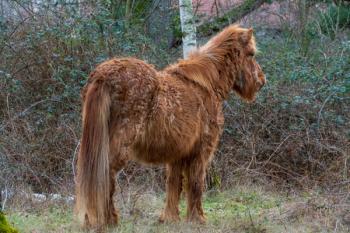
Lay equine dentists sue Texas board
Austin, Texas - Veterinary regulators employ a "monopolistic licensing scheme" to put lay equine dentists out of business. Their anti-competition tactics are unconstitutional, punishing those with skills that "far exceed that of nearly every veterinarian in the state of Texas."
AUSTIN, TEXAS — Veterinary regulators employ a "monopolistic licensing scheme" to put lay equine dentists out of business. Their anti-competition tactics are unconstitutional, punishing those with skills that "far exceed that of nearly every veterinarian in the state of Texas."
Those charges come from four lay dentists and two horse owners in a lawsuit that targets the Texas Board of Veterinary Medical Examiners (TBVME).
In August, a non-profit public-interest firm called Institute of Justice filed against TBVME and its highest officials, seeking a permanent injunction barring the prosecution of lay clients. While the lawsuit's premise isn't new — a similar complaint filed last year against Minnesota veterinary regulators is still pending — a legislative twist now prohibits the Texas board from enforcing such laws anyway.
As part of a statute, lawmakers recently enacted a 10-month moratorium on regulatory prosecution starting Aug. 1.
During that time, an animal-husbandry working group, created by the Minnesota Department of Agriculture, plans to review existing laws to develop standards for those providing animal-husbandry services, including equine dentistry procedures.
Texas veterinary authorities maintain all aspects of equine dentistry fall under the profession's purview. Yet the move hints that lawmakers consider lay dentistry's risks almost nonexistent, says Lee McGrath, the plaintiff's attorney and Institute of Justice president.
"My clients just want to float teeth and do extractions," he says. "Up until last February, this was allowed in Texas. Then the board, a group of nine people, woke up one day and decided without any public hearings that it was going to change the law in the state."
Regulatory reaction
The constitutionality challenge stems from what plaintiffs allege is "classic economic protectionism designed to benefit the monopoly of a small group of large-animal veterinarians."
Yet that's far from regulators' intent, officials contend. Texas authorities insist equine dentistry always has been covered by a broad definition of veterinary practice outlined in the state's licensing act.
According to Texas Veterinary Medical Association (TVMA) attorney Chris Copeland, regulators issued a bevy of cease-and-desist orders against lay dentists in Texas following an Internet search that revealed hundreds of unlicensed practitioners advertising dentistry services that "endanger the public and encroach on veterinary practice."
Lay dentists Carl Mitz, Dena Corbin, Randy Riedinger, Brady George and horse owners Gary Barnes and Tony Greaves responded via the lawsuit. The 15-page document contends the TBVME unfairly picks on teeth floating and extraction while not regulating "more invasive" lay practices such as castration and dehorning," categorized as animal husbandry.
When it comes to floating teeth, veterinarians are unskilled and don't want the work. This leaves horse owners without services, the lawsuit claims.
"The reality is that equine teeth-floating and extraction is an animal-husbandry procedure much more than it is one of veterinary medicine," McGrath contends. "To treat it otherwise would be to violate the constitution and common sense."
Official response
TBVME board members, individually named in the lawsuit, remain silent when it comes to defending their stance. Executive Director Dewey Helmcamp II could not be reached for comment by press time, and Dr. Robert Lastovica, board president, hung up rather than respond to a DVM Newsmagazine telephone query. After one week on the job, board attorney Nicole Oria explains she's still reviewing the lawsuit's allegations. She also points to the agency's policy of not discussing ongoing litigation.
"It has been filed in district court, and the office of the attorney general is representing us. That's all that can be said," Oria states.
Core issues
Yet arguments in the lawsuit beg for the board's public attention. Like the Minnesota case, filed on behalf of one lay equine dentist fighting to float teeth, the Texas litigation questions whether state regulators' charge to protect public health is being realized by largely limiting equine dentistry to DVMs. Teeth-floating techniques often aren't touched on in veterinary schools, and such questions rarely appear on the National American Veterinary Licensing Examination.
McGrath, who's also litigating the Minnesota case, argues that without required education on the topic, on-the-job-trained lay dentists are not less qualified than most veterinarians. He points out that allowances for lay dentists occur in a handful of states, including Florida, Connecticut, Illinois, Maryland and Vermont, which excuse floaters from regulation.
"Consumers don't want veterinarians to fence out dental practitioners who are often the most skilled at doing this type of work," he says.
Copeland argues that without regulatory oversight of lay practice, consumers have no recourse for malpractice cases. TVMA is responding by compiling a public list of Texas practitioners who perform equine dentistry to be published on the association's Web site. With their advanced medical knowledge, veterinarians remain the best practitioners of equine dentistry, he explains.
"I wasn't taught entertainment law in school. But if I wanted to practice it, I could. There's a state bar out there to make sure if I mess up they can do something about it. The same goes for veterinary medicine," Copeland says.
McGrath counters that such oversight should be left up to consumers who have a direct stake in their animals' protection.
"A horse owner concerned about the health of his animal is a far better regulator than nine people sitting in Austin acting to guard the economic interest of elitist veterinarians," he states.
Newsletter
From exam room tips to practice management insights, get trusted veterinary news delivered straight to your inbox—subscribe to dvm360.





